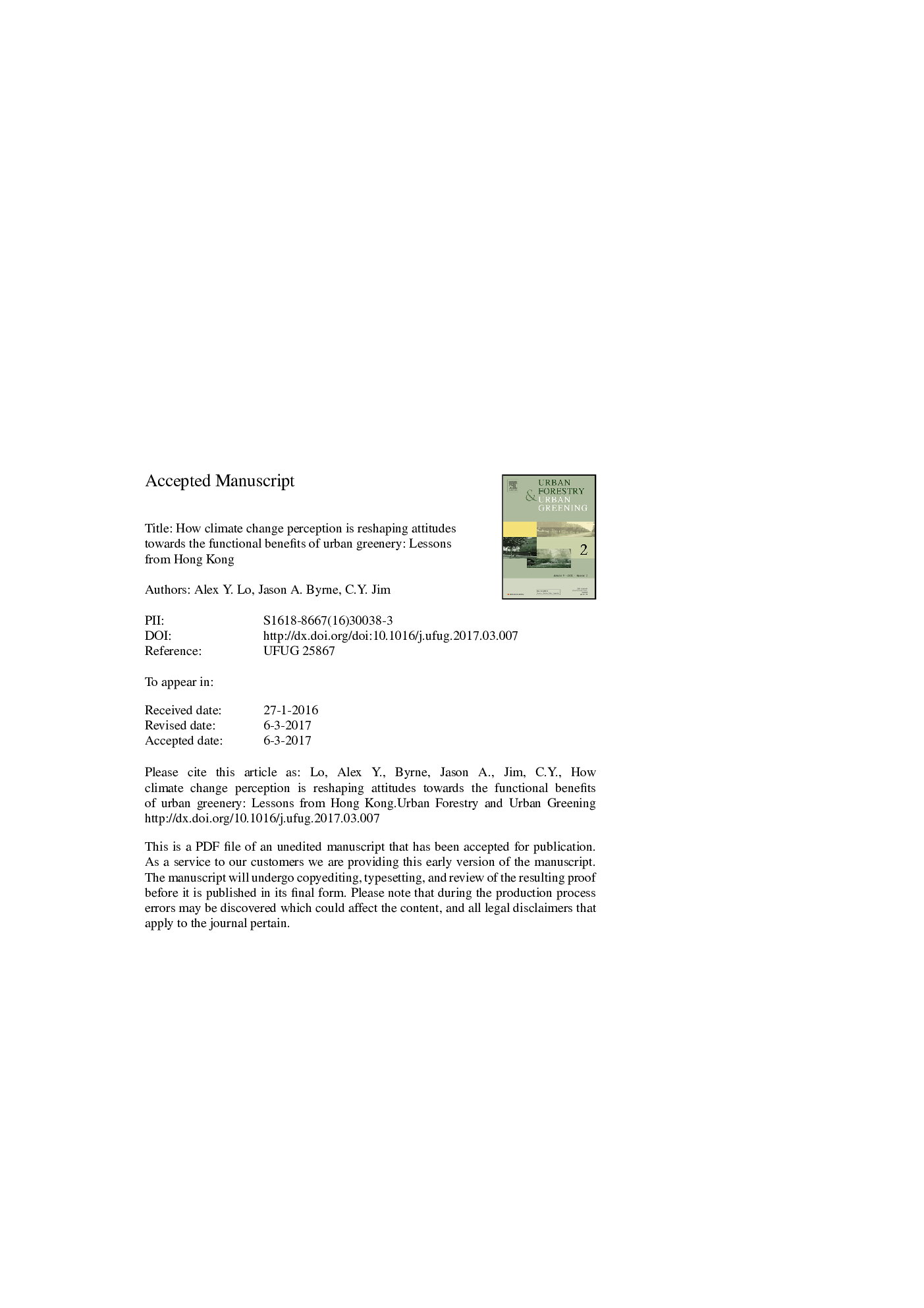| Article ID | Journal | Published Year | Pages | File Type |
|---|---|---|---|---|
| 4759998 | Urban Forestry & Urban Greening | 2017 | 32 Pages |
Abstract
Urban greening has rapidly emerged as a key urban climate change adaptation strategy. Urban greening is thought to confer manifold socio-ecological benefits upon residents in towns and cities. Yet proponents of urban greening have seldom considered how people's support for greening policies may be shaped by weather and climate. This paper reports the results of exploratory research examining public expectations of adverse weather changes and people's attitudes toward the functional benefits of urban trees and green space. Results of a questionnaire survey of 800 residents of Hong Kong indicate a positive relationship. Respondents tended to rate functional benefits as more important if they anticipated adverse weather changes in the near future, namely, rising temperatures, more tropical cyclones and prolonged rain. This subjective weather effect is more salient when these weather changes are perceived as a threat to one's daily life. We found urban greenery is assigned a higher value by individuals concerned about exposure and vulnerability to climatic stressors. Affinity for greening appears to be related to how weather and climatic variability is perceived. This observation is informed by a broader geographic perspective, which construes weather and climate as part of the spatial environment in which urban nature is apprehended and comprehended. An explanation for our findings is that increasingly volatile weather can potentially reshape urban residents' interactions with nature, based on perceived relief and/or protection from climate-related threats.
Related Topics
Life Sciences
Agricultural and Biological Sciences
Forestry
Authors
Alex Y. Lo, Jason A. Byrne, C.Y. Jim,
